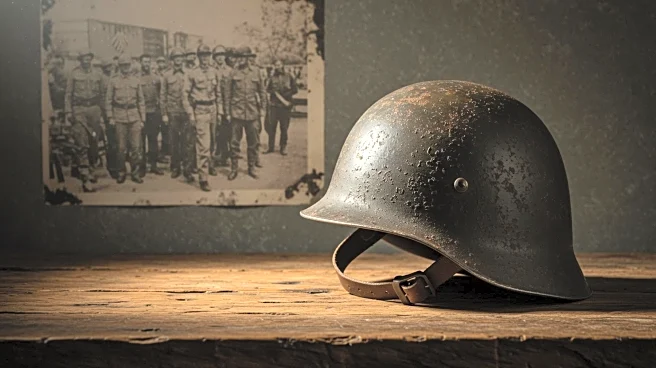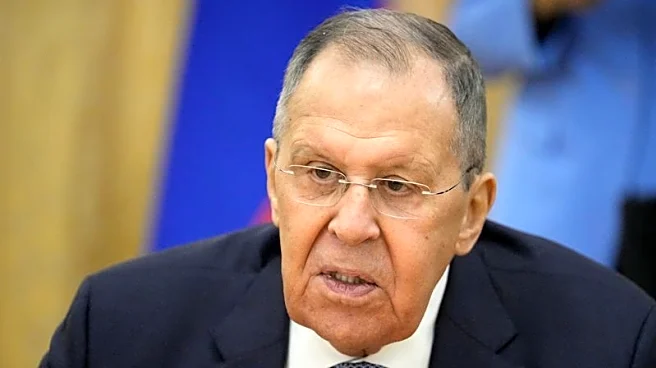What's Happening?
Charlie Richards, a 104-year-old World War II veteran from Kettering, Northamptonshire, attended the 80th anniversary of Victory over Japan Day at the National Memorial Arboretum. Richards, one of the last surviving members of the Chindits, a special forces unit that operated in Burma, expressed the significance of the event for veterans who served in the Far East. The service, attended by King Charles III and Queen Camilla, honored British, Commonwealth, and Allied veterans. Richards emphasized the importance of remembering those who did not return home, including his comrade Son Johnson.
Why It's Important?
The commemoration highlights the contributions and sacrifices of veterans who served in challenging conditions during World War II. It provides an opportunity for veterans to share their stories, many of which have remained untold. The event underscores the importance of preserving historical narratives and honoring those who fought for freedom. It also serves as a reminder of the human cost of war and the need to support veterans and their families. The presence of high-profile figures like King Charles III adds national significance to the occasion, reinforcing the importance of remembrance and reflection.
What's Next?
The service at the National Memorial Arboretum is part of a series of commemorative events across the UK. These events aim to educate the public about the war's impact and the contributions of veterans. Organizations like the Royal British Legion will continue to support veterans and promote awareness of their experiences. The commemoration may inspire further initiatives to preserve veterans' stories and ensure their legacy is passed on to future generations. Political leaders may use the occasion to advocate for peace and international cooperation, drawing lessons from the past to address current global challenges.
Beyond the Headlines
The event also invites reflection on the ethical and cultural dimensions of war, particularly the experiences of those who served in the Far East. It highlights the importance of acknowledging the diverse narratives of World War II and the roles of different nations. The commemoration serves as a platform for discussing the broader historical context of the war and its ongoing impact on global relations. It also emphasizes the need for continued support for veterans and their families, recognizing the long-term effects of wartime experiences.










